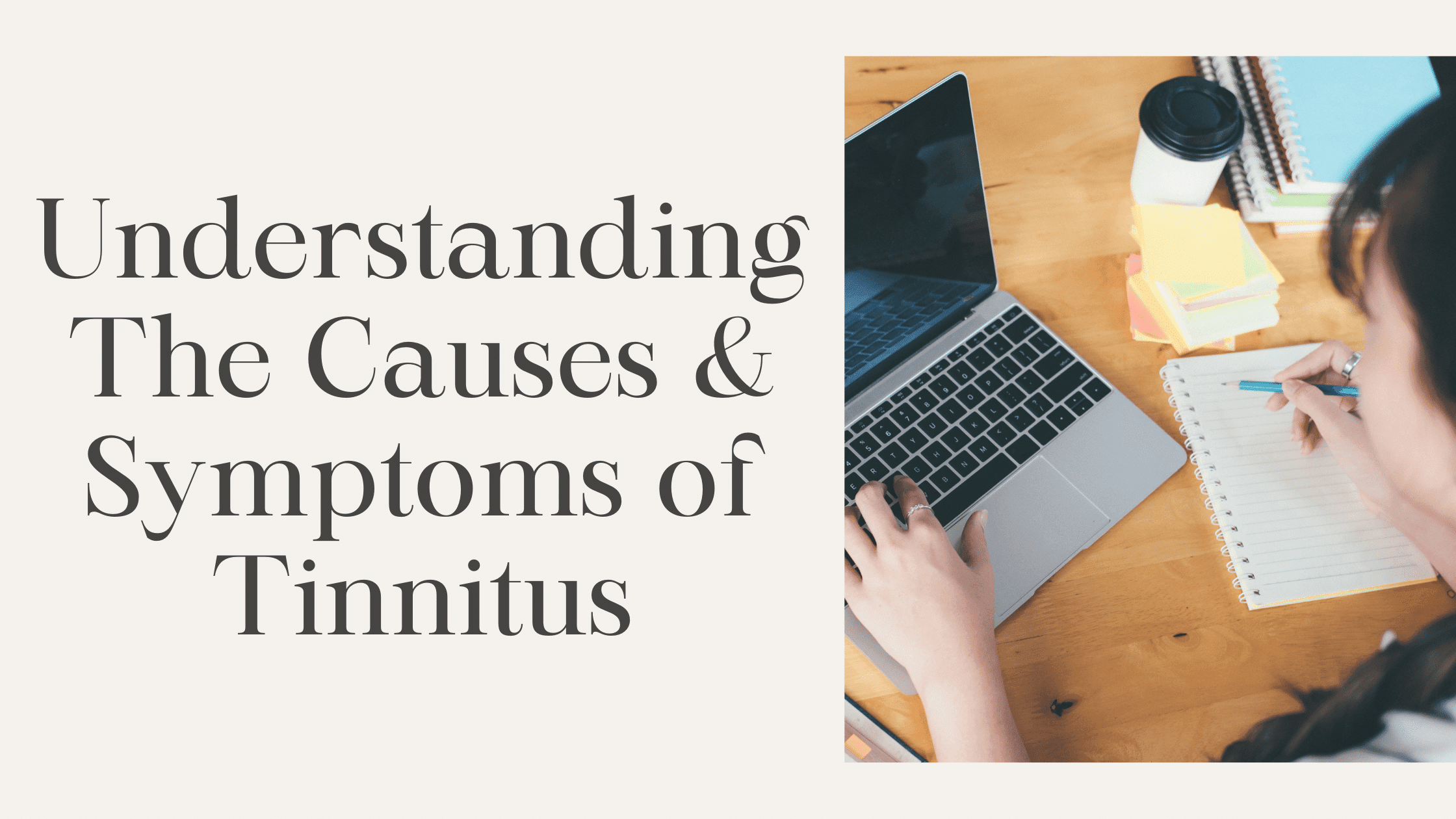- Volunteering for Hearing Health Causes - May 27, 2025
- Questions to Ask During Your Hearing Health Appointment - May 16, 2025
- Exploring Alternative Therapies for Hearing Loss - May 6, 2025
Tinnitus is typically an underlying symptom of a medical condition. It is experiencing sound – commonly described as buzzing, clicking, humming – in one or both ears when no external sound is present. According to the Hearing Health Foundation, 25 million adults report experiencing tinnitus for five (or more) minutes in the past year. Tinnitus can be mild to severe, disrupting daily life by impacting sleep, ability to concentrate, complete tasks easily etc. This can contribute to stress and fatigue, exacerbating health concerns. If you experience any degree of tinnitus, it is critical to have your health assessed so underlying issues can be identified and treated. Additionally, there are useful ways you can manage tinnitus effectively.
Common Causes of Tinnitus
There are several factors that can produce tinnitus as a symptom including the following common causes:
-
- Hearing Loss: a pervasive medical condition that impacts over 48 million people, hearing loss reduces one’s ability to absorb and process noise. It typically results from damaged hair cells in the inner ear which play an integral role in processing soundwaves. These hair cells can be damaged by loud noise, existing medical conditions, and aging. Hearing loss produces a range of symptoms and tinnitus is one of the most common. The Hearing Health Foundation estimates that 90% of tinnitus cases occur with an underlying hearing loss.
- Loud Noise: one time or consistent exposure to loud noise can be harmful to the auditory system which is how we hear and understand what we hear. Sound is measured in units referred to as decibels and noise above 85dB can damage hearing, producing tinnitus. Temporary tinnitus is also commonly experienced after attending a loud event or being in a noisy venue.
- Earwax: earwax can buildup in the ear canal and the accumulation of bacteria within it can cause infection, irritation, obstruct soundwaves etc., which can also create tinnitus.
Tinnitus can also be triggered by muscle spasms in the ear, blood vessel conditions, and bone growths in the ear. It can be temporary or chronic; consistently navigating tinnitus can really affect overall health and wellness.
Tips for Effective Management
There are numerous ways to manage tinnitus and minimize its impact on a day to day basis. A few useful tips include:
- Destressing: identifying stressors and findings ways to healthily process can alleviate the impact of stress on the body. Destressing and finding ways to relax can help minimize tinnitus. There are useful strategies that can help with relaxation including yoga, meditation, massage, baths, exercise etc.
- Using ambient noise: ambient noise, or white noise, creates soft background noise which can be a great way to reduce tinnitus. Tinnitus can be amplified in quieter settings which draw more attention to the noise so ambient sounds can distract from tinnitus. There are different ways you can create this kind of noise including using a white noise machine, playing music in the background, setting an electronic device on a lo-fi station etc.
- Exercise Consistently: physical activity can also reduce the impact of tinnitus by improving sleep, decreasing stress, and enhancing wellness. Increasing physical activity can be as simple as taking daily walks!
- Enhance Sleep: tinnitus can significantly impact sleep. Adults need 7-9 hours of sleep per night and tinnitus can make this difficult – reducing quantity and quality of sleep. Lack of sleep can then worsen tinnitus which in turn can affect sleep. There are ways you can intervene in this vicious cycle by: creating a night routine, sleeping and waking at the same time every day, turning off screens at least a half hour prior to sleeping etc.
- Reduce intake: substances including caffeine, alcohol, and nicotine can trigger tinnitus. It can be useful to observe the impact of these substances on tinnitus and reduce intake.
- Protective gear: wearing earmuffs, headphones, earplugs etc. serves as a protective barrier from loud noise. This reduces the impact of loud noise which can reduce tinnitus.
In addition to these tips to manage tinnitus, it is important to have your hearing assessed. Hearing tests measure hearing ability in both ears which identifies any impairment. This established hearing needs and informs effective treatment options to meet those needs.
If you are looking for treatment for tinnitus or hearing loss, we’re here to help! Contact us today to schedule a consultation.

